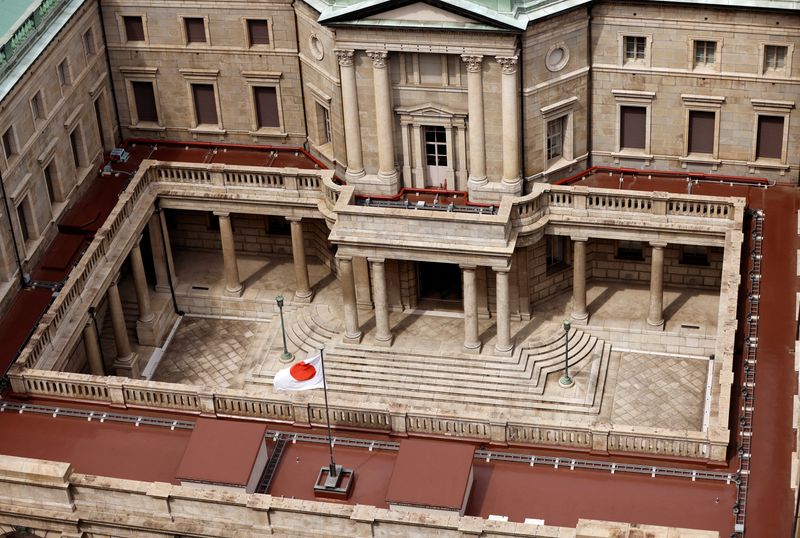BOJ policymaker says premature to debate exit from ultra-low rates
2023.11.28 22:06

© Reuters. FILE PHOTO: Japanese national flag is hoisted atop the headquarters of Bank of Japan in Tokyo, Japan September 20, 2023. REUTERS/Issei Kato
By Leika Kihara
TOKYO (Reuters) -Bank of Japan board member Seiji Adachi said on Wednesday it was premature to debate an exit from ultra-loose monetary policy, warning of lingering global economic risks and uncertainty over next year’s wage outlook.
Adachi said inflation could overshoot the central bank’s forecasts, as more companies hike prices to pass on rising costs and increase wages to cope with a tightening labour market.
But he said the BOJ must wait for clear signs that prices and wages would rise in tandem, and keep inflation sustainably at its 2% target.
“While there may be early signs such positive wage-inflation cycle is emerging, conditions aren’t sufficient yet” to debate an exit from ultra-loose monetary policy, he said in a speech.
“For now, it’s appropriate to patiently continue with our monetary easing,” said Adachi, who is considered as among those in the nine-member board with a dovish policy bias.
The remarks highlight uncertainty on how soon the BOJ could phase out a massive stimulus consisted of a negative short-term interest rate, and a 0% target for the yield set under a framework called yield curve control (YCC).
Global economic uncertainties, such as China’s slowing growth and the potential fallout from aggressive U.S. interest rate hikes, make it hard to predict whether Japanese firms will increase pay enough next year, Adachi said.
While some big companies appear keen to keep hiking wages, many smaller firms in regional areas say they could struggle to do so as they face difficult business conditions, he said.
“We’re not at a stage yet where we can discuss an exit” from ultra-loose policy, he added.
The BOJ loosened its grip on long-term yields by tweaking YCC in July and October, a move markets saw as laying the groundwork for an exit from ultra-loose policy.
With inflation exceeding its 2% target for more than a year, many market players expect the BOJ to end negative rates and YCC next year with some betting on a move as early as January.
Adachi said the moves in July and October were aimed at extending the lifespan of the framework, rather than at preparing for a future policy normalisation.








